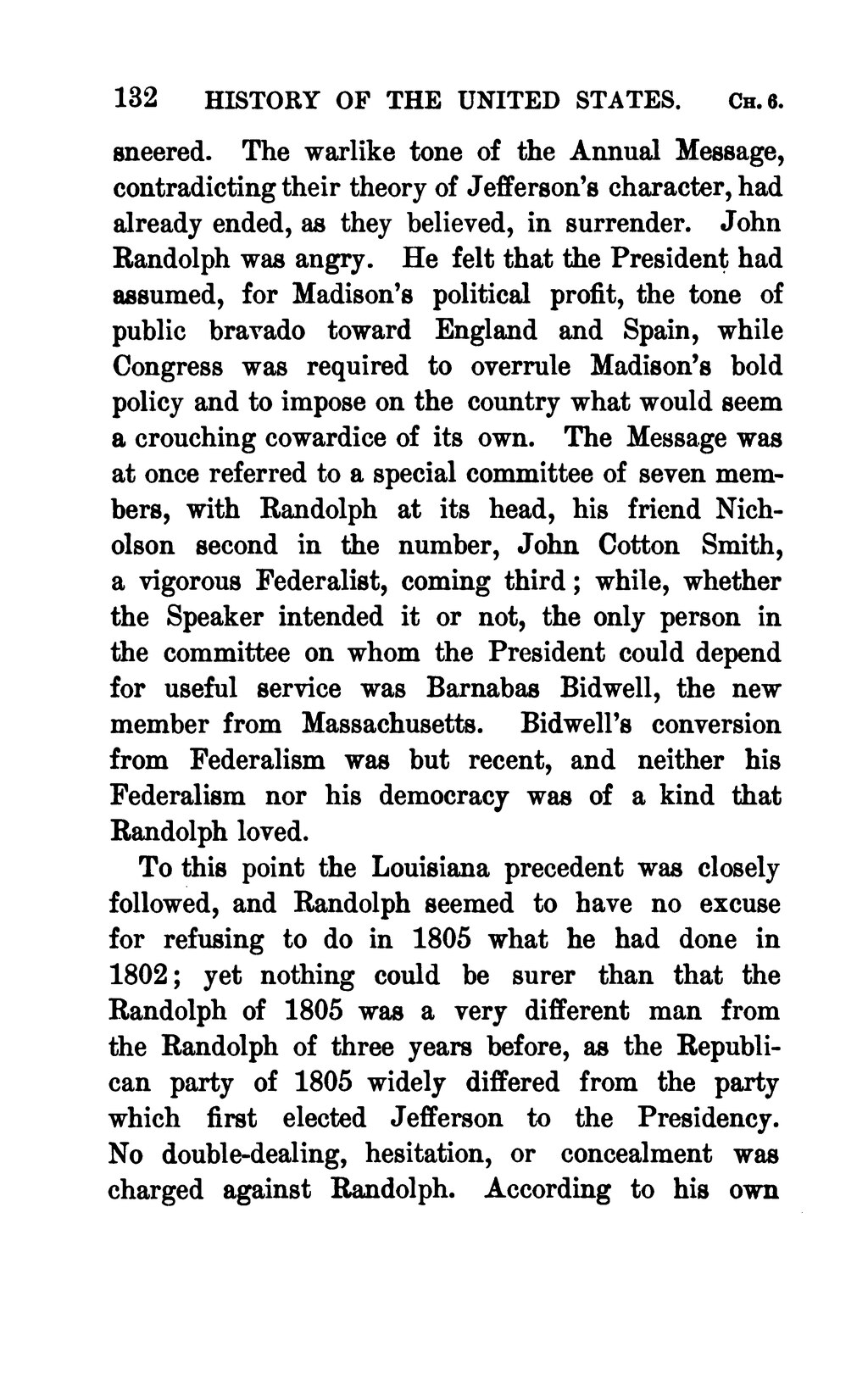sneered. The warlike tone of the Annual Message, contradicting their theory of Jefferson's character, had already ended, as they believed, in surrender. John Randolph was angry. He felt that the President had assumed, for Madison's political profit, the tone of public bravado toward England and Spain, while Congress was required to overrule Madison's bold policy and to impose on the country what would seem a crouching cowardice of its own. The Message was at once referred to a special committee of seven members, with Randolph at its head, his friend Nicholson second in the number, John Cotton Smith, a vigorous Federalist, coming third; while, whether the Speaker intended it or not, the only person in the committee on whom the President could depend for useful service was Barnabas Bidwell, the new member from Massachusetts. Bidwell's conversion from Federalism was but recent, and neither his Federalism nor his democracy was of a kind that Randolph loved.
To this point the Louisiana precedent was closely followed, and Randolph seemed to have no excuse for refusing to do in 1805 what he had done in 1802; yet nothing could be surer than that the Randolph of 1805 was a very different man from the Randolph of three years before, as the Republi- can party of 1805 widely differed from the party which first elected Jefferson to the Presidency. No double-dealing, hesitation, or concealment was charged against Randolph. According to his own
